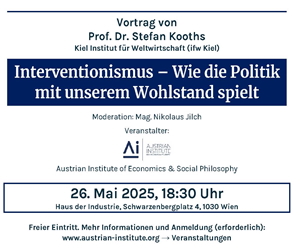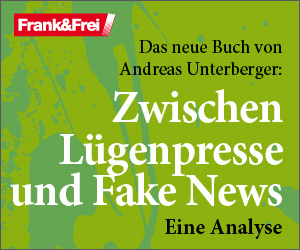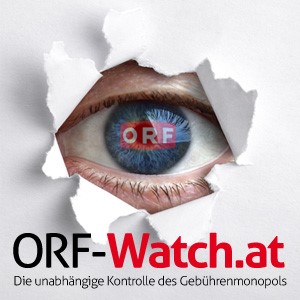Das ist in der Folge ausnahmsweise ein englischer Text. Er wird hier entgegen den Usancen des Tagebuchs veröffentlicht, weil er von dem diplomatischen Schlüsselspieler des österreichischen EU-Beitritts stammt und in Österreich noch nirgendwo veröffentlicht worden ist. Manfred Scheich hatte rund um den Beitritt sowohl als zuständiger Sektionsleiter wie auch als Botschafter in Brüssel eine entscheidende Rolle gespielt, Österreich trotz aller Einwände wegen seiner Neutralität in die Gemeinschaft zu bringen. Umso gravierender ist seine heutige kritische Sicht auf den Zustand der EU.
Der Beitrag trägt den Original-Titel:
The European Union in Crisis? - New Challenges Within Changing Parameters
The process of European integration, started very soon after the end of the Second World War, has been an undeniable political and economic success for which the adjective « historical » is for once fully applicable. After almost sixty years of its gradual development we are fully justified to say that the European project, embodied in the European Union, its objectives and institutions, has no desirable alternative.
Why, then, does the European Union seem to be in a serious crisis, reflected these days in the troubles about and around the structure and the functioning of the Monetary Union?
We have to recognize that fundamental political parameters have changed since the time of the Union’s founding, but we also have to admit to ourselves that the integration process has reached a stage, where the Union runs the risk of what is called « overreaching », i.e. it has extended integration into new areas without creating the necessary political and structural pre-conditions. This does not only endanger the functioning of the Union, but it may also put in question past accomplishments and weaken the confidence and committment of the Union’s citizens to the European project as such.
The present difficult situation of the Union, its undeniable crisis of identity, confidence and functioning can be ascribed to three main factors :
- o The change of fundamental political parameters in Europe since the founding of the European Economic Community in the 1950’s.
- o The consecutive enlargements from the six Founding Members to today’s 27 Member States
- o The venturing into fields of integration for which the political and institutional conditions have not, or only inadequately, been met.
The two elements which served as forceful political catalysts in the creation of the European Community have practically vanished. They were the living memory of the two European World.
Wars and their consequences and the acutely felt political and military threat from the counter system of Communism. The threat has disappeared and the overwhelming majority of today’s European citizens has no personal memory of the great wars during the first half of the 20th Century. With the disappearance of these catalyst forces the integration process has, however, largely lost its emotional basis, which during the first decades of the existence of the European Community had led to a situation where policies and steps decided in Brussels and which were understood to serve Western European unity almost automatically met with the acceptance by the vast majority of the population. Nowadays the Brussels developments and decisions have to be justified merely with rational arguments – and we agree, I think, that selling political decisions affecting established national interests and traditions with a rational appeal only is difficult.
Moreover, the European Community or Union has since its creation increased its membership from 6 to very soon 28 Members, i.e. by almost five times. It goes without saying that with each new member the internal heterogeneity of any community is inescapably increased or, in other words, its internal cohesion weakened – its cohesion in terms of cultural and political traditions, historical experience, level of economic development and concrete national interests. A high degree of internal cohesion is, however, of particular significance for a multinational construct, consisting of souvereign states like the European Union. The increased heterogeneity of the Union renders its functioning, i.e. its ability to decide and act efficiently more difficult and cumbersome and the risk of centrifugal forces taking over becomes greater. To counteract the situation, a strengthening of the supranational nature and structures of the Union would have been necessary. This, however, was not, or at least not adequately, done.
Finally, a third element explains the actual difficulties confronting the European Union : with the Maastrich Treaty of 1993 the Union has passed beyond the stage which one might call « negative integration », i.e. the abolition of obstacles to full market integration, realised by the four freedoms of the Internal Market, and has advanced the integration process into new and strategic fields of national policy making. A « Common Foreign -, Security-, and Defense Policy » and the creation of a « Economic and Monetary Union » became treaty objectives. Thus, the integration process has gained a new dimension and has moved onto different playing grounds with new political challenges as far as the national interests and political outlooks of Member States are concerned.
In this last context I should like to draw your attention to a specific phenomenon which makes itself increasingly felt – a growing dominance by the big Member States. This can be considered as an objective consequence of the ambitions of the Maastrich Treaty, since in fields like a Common Foreign and Security Policy and an Economic and Monetary Union, volume and weight become decisive factors in policy making. The actual developments in the Euro or debt crisis are a good example.
I have pointed to three elements which illustrate the deep changes in the political parameters since the creation of the EU and help to explain the challenges and difficulties with which the Union is actually confronted : the disappearance of the catalyst forces which marked the first decades of its existence, the consecutive enlargements leading to an ever increasing heterogeneity and the advance of the integration process into new strategic fields of policy making.
Now, would there have been a way to cope better with the new challenges ? In theory, yes, had we complemented and accompanied the consecutive enlargements (above all the so-called Eastern enlargements, which practically doubled the membership) as well as the new ventures of the CFSP and EMU with a veritable strengthening of the supranational nature of the Union.
Not that one did not know, not that one did not try. But one has to admit that the pertinent efforts largely failed. Negotiators were aware during the negotiations leading to the Amsterdam Treaty that an institutional « deepening » should be a pre-condition for the forthcoming Eastern enlargement. However, the political will and courage to realise an institutional break-through were lacking. The same held true in the case of the later Treaties of Nice and Lisbon. Certain progress had been made ; e.g. some extension of quality majority voting, but certainly not enough to meet the challenge. One may even say that on balance it was the intergovernmental dimension of the Union which had been strengthened. It is not surprising that the call – if not the necessity – for steps of a supranational or federal character reappear in the context of the Euro crisis – think of the debate about an « Economic Government », an « Economic Finance Minister », etc.
Whether the pressure arising from the crisis will be strong enough to make Governments overcome their unwillingness or hesitancy vis-à-vis transfers of more national competences to Union institutions remains to be seen.
Before this background we have to ask ourselves the question whether the Union in implementing the ambitious projects of the Maastrich Treaty has not overreached itself, given the political and institutional limits.
Let us look at the Monetary Union and the debt crisis. There is no doubt that the introduction of the Euro has rightly been considered as a crowning step in integration. One cannot doubt its practical advantages for business and the common citizen. However, the second part of the project, i.e. the Economic Union, comprising a common fiscal policy together with the necessary institutions was left in abeyance. About ten years after the introduction of the Euro the system is now in an existential crisis.
Why ? The monetary system itself has been construed with a two-fold birth deficiency. It has bound together in the corset of a common currency a number of sovereign states among which deep divergencies exist in terms of economic « culture » and, above all, economic capabilities and performance. This has, secondly, been done without providing the contractual as well as institutional basis for a common economic governance to secure the appropriate common macro-economic, in particular fiscal policies.
The responsible political actors thought or hoped, that by simply setting a budget deficit criterion of 3% coupled with a sanction mechanism which in itself was economically doubtful and proved ineffective, as well as establishing the « no bailing-out rule », one could control the situation and everything would be in order.
When the day of reckoning came the inefficiency of this construction came dramatically to light. The bailing-out rule was simply ignored, a rule which was, in particular for Germany, but also for other so-called stability countries, the key condition for accepting the common currency. I dare say that if at the time of the Euro introduction and in the light of the then prevailing conditions and assumptions, the present developments had been foreseen, the common currency might not have seen the light of day or had been differently construed from the start. There were, at the time serious warnings by many economists, but they were simply dismissed.
Now we have to cope with the consequences and do our best to save and consolidate the Common Currency. Whether the measures agreed upon up to now will prove sufficient remains to be seen. Doubts are justified. The lesson to be drawn, however, is to avoid in future to embark on ambitious integration projects without providing the necessary political and institutional basis.
We observe similar phenomena and deficits in two other fields of integration and cooperation, though with less dramatic and obvious consequences as in the monetary sector. The Union is about to build a world-wide and costly EU diplomatic service without having developed a comprehensive Common Foreign and Security Policy which would in fact deserve the adjective « common » and on which one could base common action. CFSP is still an aspiration, a positive and noble aspiration, but not yet a reality. One must hope that those are right who pretend that the sheer existence of this diplomatic service will serve as catalyst and stimulus for the gradual creation of a veritable, comprehensive Common Policy.
Another example might serve to illustrate consequences of not providing the necessary basis for common policies and actions. The Internal Market foresees the establishment of free movement of persons across the Union’s internal borders. However, logic tells us that an internally borderless Union demands common asylum and migration policies, since the free movement is not only a blessing for EU citizens, but also for legal and illegal migrants entering the territory of the Union. The consequences of the lack of the above-mentioned common rules could lately be observed in the relations between Italy and France as well as between Denmark and Germany. They threaten to undermine the Schengen Rules and thus one of the most important achievements of integration.
All the above examples show the risks which the implementaion of integration policies and steps can have if they are not underpinned by a common agenda and a firm political will of all Member States, by a full awareness of the political and practical consequences, and if they are not based on the necessary institutional structures. The examples also explain the present crisis and difficulties the Union faces. Failing to draw the necessary lessons from past mistakes could lead to a further weakening of the confidence and committment of the European citizens to the European Project as such, and thus, in the long run, threaten its very political legitimacy.
My presentation must not be construed as pessimistic in outlook, but rather as an explanation of the present state of the European Union and the internal challenges it faces. The European project which, I repeat, has no desirable political alternative, and is too valuable not to be under permanent critical scrutiny. This is the only way to correct mistakes, consolidate the achievements, and preserve and strengthen the basis for future development.












